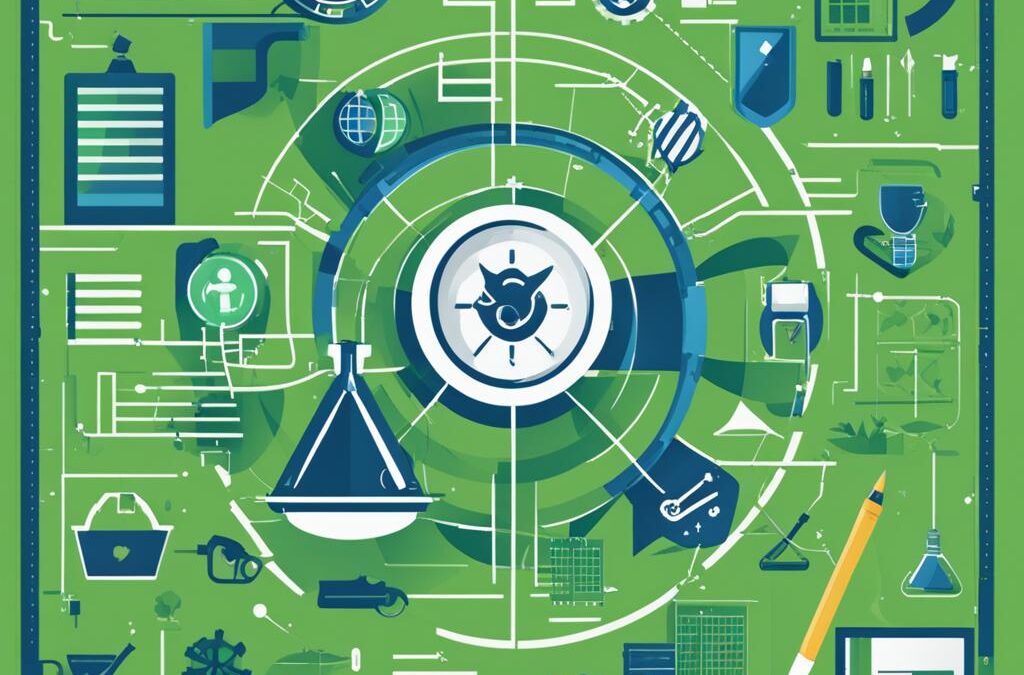In the healthcare sector Care Compliance, Nursing services Data protection and Legal care requirements are fundamental pillars for guaranteeing professional and trustworthy care. We are committed to ensuring that these principles are firmly anchored in the processes of care facilities. It is our aim to meet the highest standards in care through transparent action, continuous training and constant adjustments to the legal framework. Integrity in the healthcare sector is our top priority, ensuring the well-being of the people in our care.
Important findings
- Strict compliance with Care Compliance is essential for quality assurance in nursing care.
- Legal care requirements must be continuously followed and integrated into internal processes.
- Nursing services Data protection is a central aspect of our work to ensure trust and security.
- We optimize our compliance measures through regular training and audits.
- Adapting to new legislation ensures the constant further development of our quality of care.
Legal basis for compliance in care
In our constantly evolving society, compliance is a key pillar in the healthcare sector and especially in the care industry. In order to ensure integrity and transparency, care providers must comply with the legal framework, which is made up of various laws and regulations. A central component of this legal basis is the Anti-Corruption Actwhich specifically combats illegal practices in the healthcare sector.
Important laws and regulations at a glance
Increased awareness of compliance will encourage care providers to comply with guidelines and laws such as the Anti-Corruption Act strictly adhered to. These also include substantial sections such as the § 299 a,b StGBwhich are essential for maintaining legal and ethical standards in nursing care. By taking these legal requirements into account in the Maintenance compliance guidelines the risk of corruption is significantly minimized.
Anti-corruption law and its significance for care service providers
The Anti-Corruption Act creates concrete points of reference for care service providers that help to reduce the risk of criminal prosecution and at the same time promote ethical business practices. It thus sends out clear signals against corruption and at the same time provides a basis for action for clean and transparent corporate governance.
Relevance of Section 299 a,b StGB for the care sector
The paragraphs § 299 a and b of the German Criminal Code (StGB) are of particular importance, as they define the elements of bribery and corruption in the healthcare sector and therefore directly address the players in the care sector. These legal norms ensure that patients and those in need of care can rely on the quality and integrity of the care services they receive. The fight against corruption is an essential aspect of the Maintenance compliance guidelineswhich is a top priority for us as a care service provider and is continuously incorporated into our Compliance management system anchored and implemented.
Maintenance compliance guidelines
We understand Care Compliance strict compliance with legal requirements, ethical principles and internal company guidelines. The legal care requirements in this context form the foundation for high-quality patient care and the protection of sensitive data. Our policies are designed to maintain the trust of patients and the public in care services and care facilities while protecting the integrity and reputation of the facility.
A central aspect of compliance in the care sector is the Nursing services Data protection. With this in mind, we act proactively not only to protect the privacy of patients, but also to consistently avoid legal offenses.
Compliance is not only a legal necessity, but also an ethical imperative for the care sector.
- Compliance with national and international standards
- Ongoing employee training on current compliance topics
- Clear communication of our guidelines to all stakeholders
- Participation in the development of industry-specific compliance standards
The commitment to Care Compliance is far-reaching and includes all levels of the organization.

Best practices for data protection in care services
The protection of sensitive data in care services is a fundamental challenge that must be overcome through technical and organizational measures. With the increasing digitalization of the healthcare industry, the demands placed on the Nursing services Data protection. We focus on the most effective strategies that not only comply with legal standards, but also strengthen patient confidence.
Technical and organizational measures for data security
A holistic approach is required to ensure data security. This includes regular updates to security systems, strict access controls and the encryption of data both during transmission and storage. In addition, contingency plans must be established that take effect quickly and effectively in the event of a data leak.
Employee training as a key component
Well-informed employees are the foundation of any data protection concept. Regular training courses to raise awareness and communicate the latest Privacy policy are therefore essential. These form the backbone of an active data protection culture within the company and help to minimize both negligent and intentional data breaches.

| Measure | Goal | Implementation |
|---|---|---|
| Data encryption | Protection of data integrity | Use of end-to-end encryption |
| Regular security updates | Prevention against cyber attacks | Automated update processes |
| Access controls | Minimization of unauthorized data access | Access rights and authentication methods |
| Emergency management | Act quickly in the event of data leaks | Emergency plans and training |
| Employee training | Establishing a data protection culture | Regular further training and workshops |
Implementation of a compliance management system (CMS)
The introduction of a compliance management system is crucial for care facilities in order to meet ongoing legal obligations. An effective CMS ensures that we systematically fulfill all **legal care requirements** while ensuring the integrity and safety of services. It serves as the basis for a transparent and ethical working environment in which every employee is aware of how their actions influence compliance with specified standards.
At the core of the **implementation** of a CMS is the ongoing risk analysis. This enables us to identify potential threats and vulnerabilities and proactively develop measures to minimize them. The control mechanisms we establish are not static, but adapt dynamically to the current legal framework and the changing landscape of the care sector. The training and ongoing awareness of our staff is also of immeasurable importance - it forms the backbone of any compliance management system.
The sustainability and efficiency of a CMS is demonstrated by its ability to adapt and evolve. The use of such a system is a clear commitment to ethical principles and quality patient care that is in line with all legal **compliance management system** requirements. By continuously maintaining and developing our CMS, we ensure that our facility sets the standard for excellence in care.
FAQ
What is compliance in the care sector?
Compliance in the care sector encompasses adherence to legal regulations, guidelines and internal rules. The aim is to ensure the quality and safety of care services, avoid corruption, protect the integrity of medical decisions and guarantee patient privacy.
Which legal principles are relevant for compliance in care?
The legal basis for compliance in the care sector includes key regulations such as the Anti-Corruption Act, in particular paragraphs § 299 a and § 299 b StGB. These are specifically designed to combat corruption in the healthcare sector.
Why is the Anti-Corruption Act important for care service providers?
The Anti-Corruption Act is important because it criminalizes bribery and corruption in the healthcare sector. Care providers must ensure that they comply with these laws and take a stand against corruption through effective compliance measures.
What do care compliance guidelines contain?
Care Compliance Guidelines comprise binding rules of conduct and framework conditions that ensure that care facilities act in accordance with the law. These include aspects such as patient safety, data protection and ethical management.
How is data protection implemented in care services?
Data protection in care services is guaranteed by technical and organizational measures that ensure the protection of personal health information. In addition, regular employee training on data protection is necessary to strengthen awareness and the data protection culture in the organization.
What is a compliance management system (CMS) and why is it important for care facilities?
A Compliance management system (CMS) is a framework that supports care facilities in complying with legal requirements and internal guidelines. It includes the identification of risks that Implementation of control mechanisms and staff training. A CMS is essential for adapting care facilities to new legal requirements and improving risk management.
